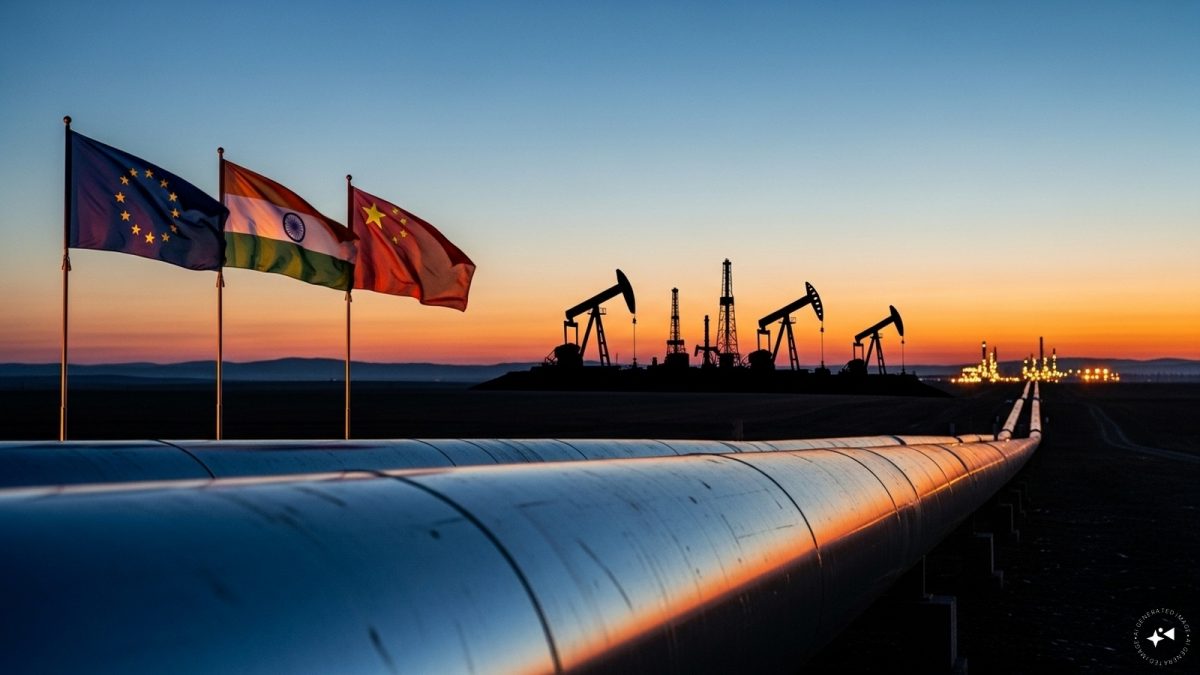The European Union is very unlikely to impose crippling tariffs on India or China, the main buyers of Russian oil, as US President Donald Trump has urged the bloc to do.
The European Union is unlikely to impose heavy tariffs on India and China, the two biggest buyers of Russian oil despite pressure from US President Donald Trump, Reuters reported quoting EU sources as saying.
A delegation of EU officials, including the bloc’s Russia sanctions chief, travelled to Washington this week to coordinate sanctions policy with the US. During the talks, Trump reportedly urged the EU to slap tariffs of up to 100% on Indian and Chinese oil purchases from Russia, arguing that such measures would cut off a key source of revenue for President Vladimir Putin.
The European Commission declined to comment.
While the EU has rolled out sweeping sanctions on Russia and in July added two Chinese banks and a major Indian refinery to its blacklist, officials said that tariffs follow a different legal process. Unlike sanctions, tariffs can only be imposed after lengthy investigations to establish a legal basis, making a swift move highly unlikely.
The bloc has so far only imposed tariffs in the context of the Ukraine war on Russian and Belarusian fertilizers and farm products. The justification for the measures was to prevent creating a dependency that could be exploited and to avoid harm to EU fertiliser producers.
”So far, there is no discussion on possible tariffs neither on India…nor with China,” an EU diplomat said.
Furthermore, the EU is in the midst of finalising a trade deal with India, which the bloc is unlikely to want to jeopardize.
Trump’s position on India also appeared to ease by Wednesday, when he said he was looking to reset trade relations with New Delhi.
Another EU source said such tariffs were risky and could be too broad and it was easier to sanction specific entities and open the door to delist them if they ended their business with Russia.
Up to now, the EU had limited itself to listing small and unknown entities in third countries, which were often shell companies used to funnel military equipment or dual-use goods for use by Russia’s military.
The EU is planning to list banks in two central Asian countries in its 19th package of sanctions as well as Chinese refineries, which could be proposed as soon as Friday.
With inputs from agencies
End of Article

)
)
